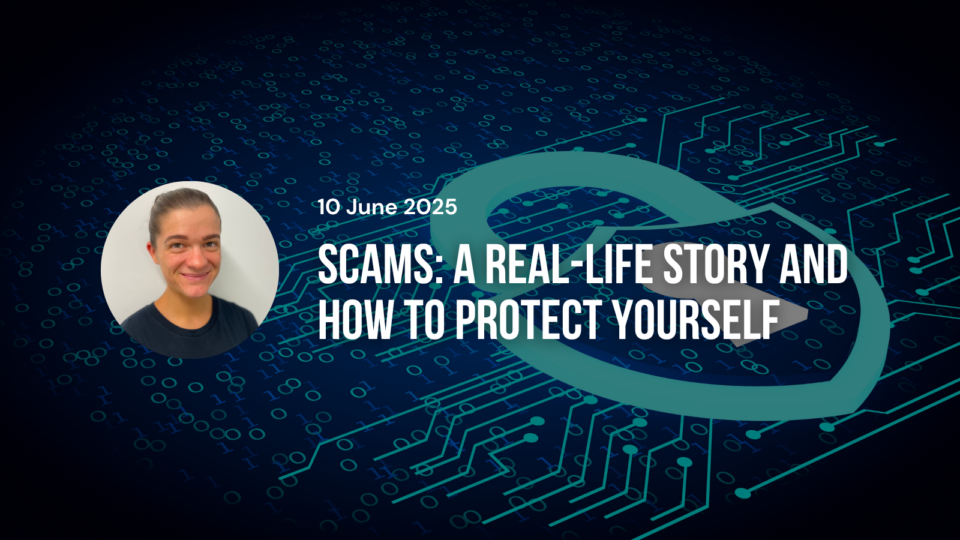

By Robert Miller, NAOS Asset Manager
04 March 2022
Equity markets provide us with daily pricing & liquidity. With that comes many different market participants, strategies and decision-making processes. As individual investors, we are without a doubt a small fish in a very large pond and with equity markets having changed significantly over time, we need to adapt our mindset to better deal with the challenges.
3 Forces Influencing Public Equity Markets
1. Humans
When it comes to investing, we are all susceptible to the common trappings of human emotions and have the potential to be our own worst enemy. In our investing experiences, it is likely we can identify with some/all of the following:
- FOMO (fear of missing out),
- Being overly optimistic (or pessimistic)
- Biases
- Boredom and/or inactivity.
The great Scottish economist and philosopher Adam Smith famously said that “emotions are universal and there is no stopping the flow of seasons”. With that in mind, as long as there is human involvement within equity markets then the impact of human emotion on those markets will be present.
2. Technology
What has become very apparent over the past decade is the fact computer generated trading algorithms are a major element influencing all global equity markets. It has been estimated by ASIC that more than half of all high frequency trading (HFT) positions are held for a period of less than 30 minutes.1 Thus its worth asking are company fundamentals always going to be an investment consideration for algorithmic trading systems? This is certainly not the case.
3. Short-Termism
We all live in a ‘real time’ world in which information has become freely and rapidly available at our fingertips. This has had an impact on public markets which are becoming increasingly focused on the short-term.
The 2020 ASX Australian Investor Study highlighted that the median number of days between portfolio reviews by investors is now 14 days.2By comparison, the figures from the 2010 study state that only 26% of investors traded shares more than seven times over a 12-month period, and amazingly, 51% of investors did not trade any shares at all.3 To us this short-termism paradigm shift is genuine, and we see no reason why this will change anytime soon.
Closed for Business
Imagine a hypothetical scenario in which the stock market is closing today and will not reopen tomorrow. It is officially closed for business and will not be reopening for 5 years. Being forced to take a long-term view could have a major influence on your decision-making process. Would it perhaps mean that you:
• Would you first focus on understanding the risks over thinking about the returns?
• Remove many of the emotional trappings of investing?
• Take more of an interest and understanding of what exactly you are investing in?
• Think like a business owner rather than a shareholder?
1.Think Beyond the Stock Code
By thinking beyond the stock code you are shifting the paradigm of what it means to be an investor in a business. What does it actually mean to be an owner of shares in a company? Ultimately, you are not a ‘share holder’, rather you are entering a partnership as a proportional owner of a business. To focus on long term value creation, we must ignore the trappings of the short term. Thinking as a proportional business owner will help us understand that the operations of a business are the output of many inputs and not simply something that revolves around the daily fluctuations of a share price.
In public equity markets, there are a relatively limited set of elements that you can control including:
• What you buy
• When you buy (and how much you buy)
• When you sell (and how much you sell).
There is also a very long list of uncontrollable forces that impact your investment. If we know the factors we can control, then if the market closed tomorrow, would you be more considered in your approach to understanding what you are investing in and why?
3. Enhance Human Nature and Business Culture
Businesses are living, breathing things. They will naturally have strengths and weaknesses, experience good times and bad, and often be quite complex. Humans by nature tend to simplify concepts and ideas, and when factoring in daily priced equity markets to our thinking, investors can often underreact or overreact to short term news flow.
Famed investor Benjamin Graham said that “Mr. Market’s job is to provide you with prices; your job is to decide whether it is to your advantage to act on them. You do not have to trade with him just because he constantly begs you to”. As investors, if we understand that human emotion is an ever-present factor in markets then we can try to heed the words of Benjamin Graham and strip back the emotion to focus on what really matters.
Conclusion
In an increasingly short-term focused world, thinking with a private company mentality in public equity markets can be a powerful tool. Shifting the way in which we identify and interact with the daily forces (and pitfalls) of equity markets can lead to an adjustment in the mindset of how we view a company.
We know that in theory, the long-term compounding of capital can produce significant results, but the reality is that in order to achieve this we also need other critical elements including patience, understanding and a long-term time horizon.
At NAOS, this is our approach. Our investment philosophy is built around adopting a ‘private company mentality’. Our approach is to:
- Think about the long-term potential of a company and not the stock code.
- Understand what you can and cannot control.
- Recognise the environment but focus on the longer term.
What would your approach be if the stock market closed tomorrow?
Important Information: This material has been prepared by NAOS Asset Management Limited (ABN 23 107 624 126, AFSL 273529 and is provided for general information purposes only and must not be construed as investment advice. It does not take into account the investment objectives, financial situation or needs of any particular investor. Before making an investment decision, investors should consider obtaining professional investment advice that is tailored to their specific circumstances.
References
1 https://www.aph.gov.au/Parliamentary_Business/Committees/Joint/ Corporations_and_Financial_Services/Membership/asic/asic20132May/c03
2 https://www.asx.com.au/blog/australian-investor-study





